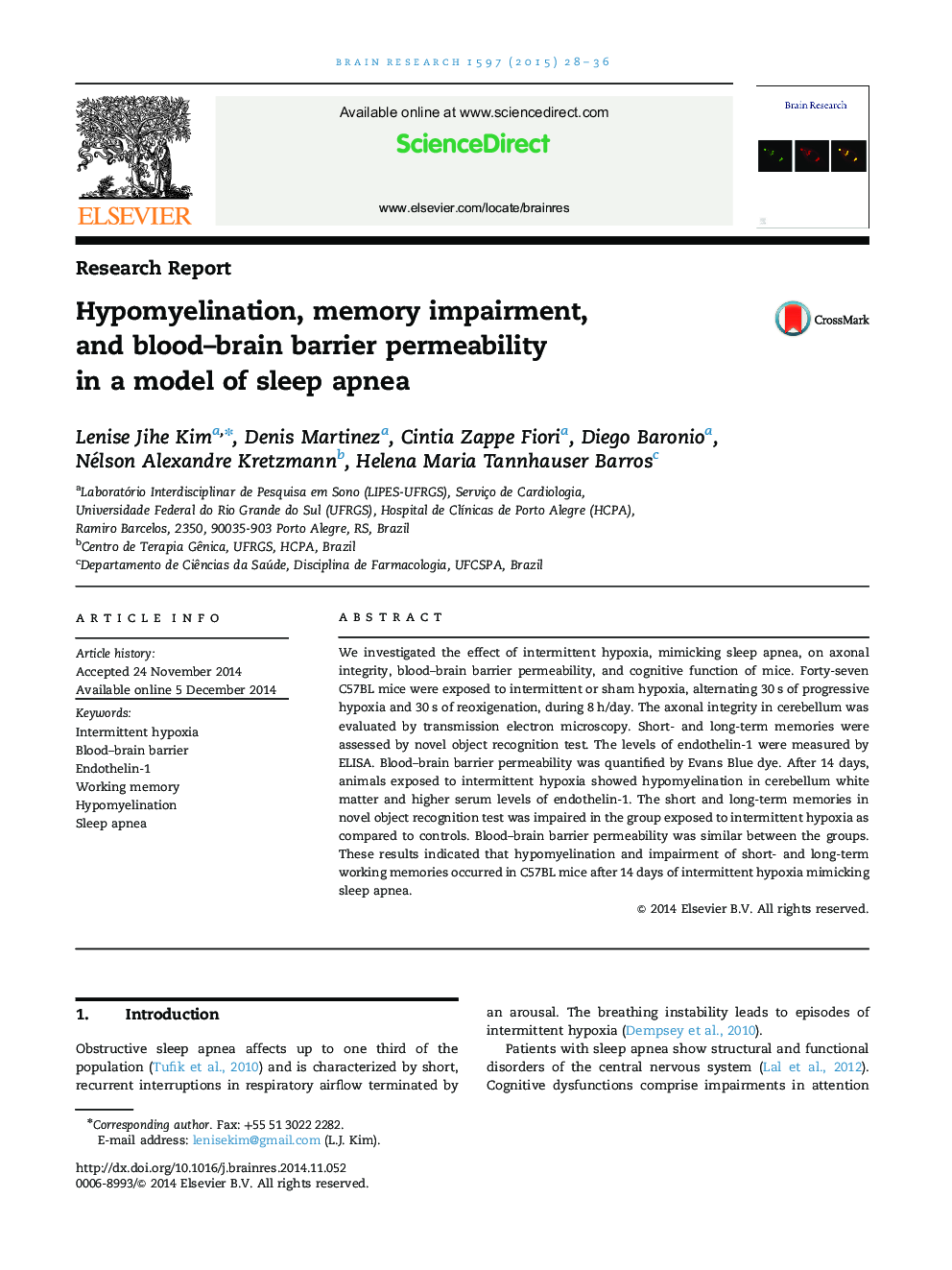| Article ID | Journal | Published Year | Pages | File Type |
|---|---|---|---|---|
| 6263191 | Brain Research | 2015 | 9 Pages |
â¢Intermittent hypoxia caused ultrastructural brain damage.â¢Intermittent hypoxia increased serum levels of endothelin-1.â¢Intermittent hypoxia did not alter the blood-brain barrier permeability.â¢Intermittent hypoxia induced working memory impairment.
We investigated the effect of intermittent hypoxia, mimicking sleep apnea, on axonal integrity, blood-brain barrier permeability, and cognitive function of mice. Forty-seven C57BL mice were exposed to intermittent or sham hypoxia, alternating 30Â s of progressive hypoxia and 30Â s of reoxigenation, during 8Â h/day. The axonal integrity in cerebellum was evaluated by transmission electron microscopy. Short- and long-term memories were assessed by novel object recognition test. The levels of endothelin-1 were measured by ELISA. Blood-brain barrier permeability was quantified by Evans Blue dye. After 14 days, animals exposed to intermittent hypoxia showed hypomyelination in cerebellum white matter and higher serum levels of endothelin-1. The short and long-term memories in novel object recognition test was impaired in the group exposed to intermittent hypoxia as compared to controls. Blood-brain barrier permeability was similar between the groups. These results indicated that hypomyelination and impairment of short- and long-term working memories occurred in C57BL mice after 14 days of intermittent hypoxia mimicking sleep apnea.
